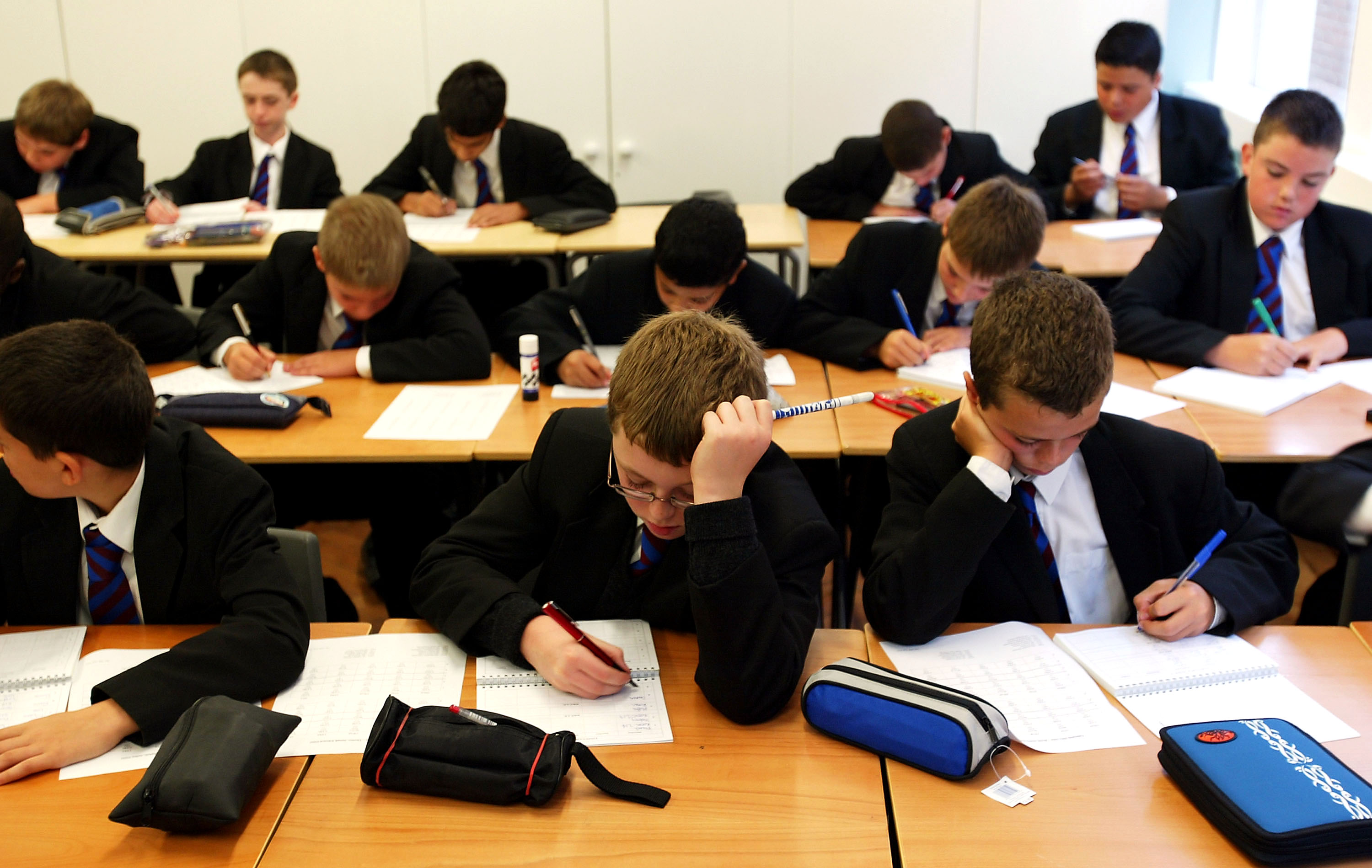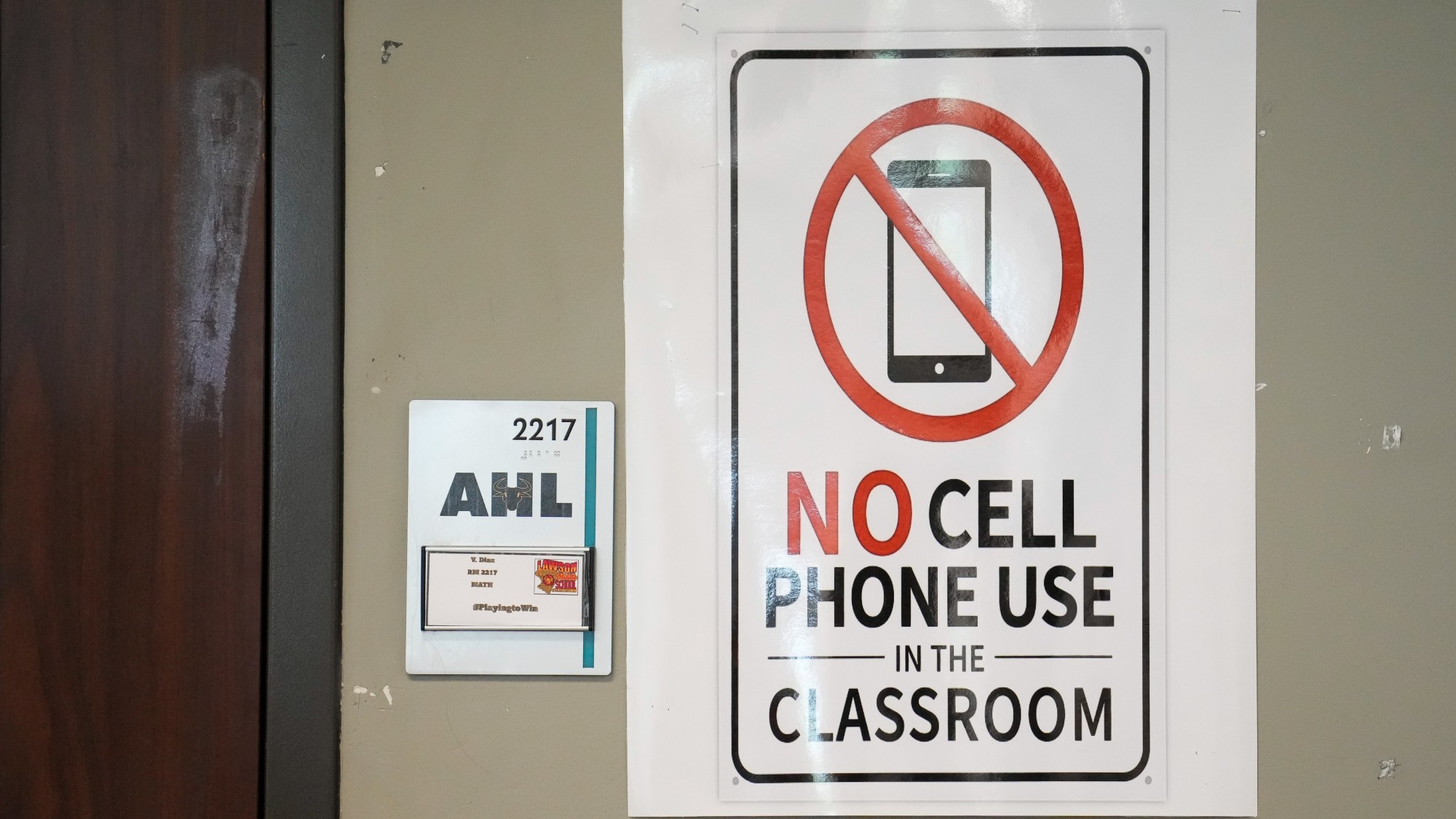Is Religious Education on its way out?
New report suggests replacing RE classes with ‘Religion and Worldviews’

A free daily email with the biggest news stories of the day – and the best features from TheWeek.com
You are now subscribed
Your newsletter sign-up was successful
Religious Education (RE) classes should be replaced with a course named Religion and Worldviews in order to incorporate beliefs including humanism, secularism, atheism and agnosticism, according to experts.
The number of UK schools teaching RE has declined in recent years, with less than a quarter covering the subject during the first three years of senior school. Around a third do not offer RE as an option for GCSEs.
In a bid to halt the decline, the Commission on Religious Education is suggesting “a number of changes which will see the biggest shake-up in the subject since the 1970s”, says The Independent.
The Week
Escape your echo chamber. Get the facts behind the news, plus analysis from multiple perspectives.

Sign up for The Week's Free Newsletters
From our morning news briefing to a weekly Good News Newsletter, get the best of The Week delivered directly to your inbox.
From our morning news briefing to a weekly Good News Newsletter, get the best of The Week delivered directly to your inbox.
The proposals are outlined in a newly published report, following a two-year consultation by the commission, which was set up by the Religious Education Council of England and Wales.
The report argues that RE should be rebranded to “reflect the complex, diverse and plural nature of worldviews”, drawing from “a range of religious, philosophical, spiritual and other approaches to life, including different traditions within Christianity, Buddhism, Hinduism, Islam, Judaism and Sikhism, non-religious worldviews and concepts including humanism, secularism, atheism and agnosticism”.
Schools “should be permitted flexibility to tailor content to local circumstances, or in the case of faith schools to provide extra teaching relevant to their creed”, the authors add.
In an article on The Conversation, Gladys Ganiel, a sociologist of religion and author of The Deconstructed Church, suggests that “explicit broadening to include worldviews appears to accommodate the rise of people of no religion in Britain”, noting that recent British Social Attitudes surveys have “found that around 50% of the population has identified as having no religion since 2009”.
A free daily email with the biggest news stories of the day – and the best features from TheWeek.com
The commission’s recommendations have also been welcomed by the Church of England, while Humanists UK, a charity working on behalf of non-religious people, said the proposals “will help pupils make sense of religion and belief as it is lived today”.
However, not everyone is convinced. The Board of Deputies of British Jews has criticised “the dilution of religious education through the inclusion of worldviews”, adding that the report “might be seen as an attempt by those hostile to faith to push their agenda of undermining rigour in religious education at a time when faith literacy could not be more important”.
The Catholic Education Service agrees, saying that “the quality of religious education is not improved by teaching less religion”.
But Ganiel, argues that the opposite is true. She concludes: “If it is properly resourced and phased in over a reasonable period of time, Religion and Worldviews could enhance – not undermine – the teaching of religious education in Britain.”
-
 The Week Unwrapped: Have televised confessions quelled protests in Iran?
The Week Unwrapped: Have televised confessions quelled protests in Iran?Podcast Plus, why has Elon Musk turned from Mars to the Moon? And will the BBC prove to be a puzzles champ?
-
 The week’s best photos
The week’s best photosIn Pictures An Andean god, a rogue squirrel, and more
-
 9 products to jazz up your letters and cards
9 products to jazz up your letters and cardsThe Week Recommends Get the write stuff
-
 How will new V level qualifications work?
How will new V level qualifications work?The Explainer Government proposals aim to ‘streamline’ post-GCSE education options
-
 The pros and cons of banning cellphones in classrooms
The pros and cons of banning cellphones in classroomsPros and cons The devices could be major distractions
-
 School phone bans: Why they're spreading
School phone bans: Why they're spreadingFeature 17 states are imposing all-day phone bans in schools
-
 Schools: The return of a dreaded fitness test
Schools: The return of a dreaded fitness testFeature Donald Trump is bringing the Presidential Fitness Test back to classrooms nationwide
-
 Send reforms: government's battle over special educational needs
Send reforms: government's battle over special educational needsThe Explainer Current system in 'crisis' but parents fear overhaul will leave many young people behind
-
 Education: Can public schools be religious?
Education: Can public schools be religious?Feature A Supreme Court seems ready to rule in favor of religious charter schools in Oklahoma, which could reshape public education
-
 America's academic brain drain has begun
America's academic brain drain has begunIN THE SPOTLIGHT As the Trump administration targets universities and teachers, educators are eying greener academic pastures elsewhere — and other nations are starting to take notice
-
 Schools' Send crisis: how can it be fixed?
Schools' Send crisis: how can it be fixed?Today's Big Question Government urged to reform support for children with special educational needs and disabilities and save councils from bankruptcy